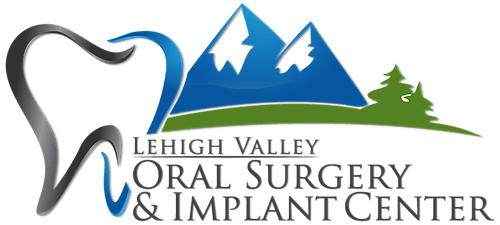Understanding Preventive Dentistry
Preventive dentistry is a cornerstone of maintaining good oral health and avoiding dental emergencies. It encompasses a range of practices designed to keep your teeth and gums healthy, thereby reducing the risk of dental problems. By embracing preventive dentistry, you can take proactive steps to protect your smile and overall well-being.
At the heart of preventive dentistry are good oral hygiene habits. This means brushing your teeth at least twice a day with fluoride toothpaste and using a soft-bristled toothbrush. The American Dental Association recommends brushing for at least two minutes to effectively remove plaque and bacteria that can lead to tooth decay and gum disease. Flossing daily is equally important, as it helps clean the spaces between your teeth where a toothbrush might not reach. Rinsing with an antibacterial mouthwash can also help reduce plaque and prevent gum disease.
Regular dental check-ups are another critical component of preventive dentistry. Visiting your dentist regularly allows for early detection of potential oral health problems, such as tooth decay, gum disease, and even oral cancer. During these check-ups, your dentist can provide professional cleanings, fluoride treatments, and apply dental sealants to protect your teeth from decay. These preventive dental care services are essential for maintaining good oral health and preventing dental emergencies.
A balanced diet plays a significant role in preventive dentistry as well. Consuming a diet rich in fresh fruits, vegetables, dairy products, and lean proteins can help strengthen your teeth and gums. Limiting sugary and acidic foods and drinks is crucial, as they can erode tooth enamel and lead to cavities. Additionally, avoiding tobacco products and moderating alcohol consumption can further protect your oral health.
By practicing good oral hygiene habits, visiting your dentist regularly, and maintaining a healthy diet, you can significantly reduce the risk of dental emergencies. Preventive dentistry is not just about avoiding dental problems; it’s about fostering a healthy, beautiful smile that lasts a lifetime. At Lehigh Valley Oral Surgery & Implant Center, we are committed to helping you achieve and maintain excellent oral health through comprehensive preventive dental services.
How to Prevent Dental Emergencies From Occurring
Dental emergencies can be painful, inconvenient, and potentially costly. However, with the right knowledge and preventive measures, you can significantly reduce your risk of needing emergency dentistry services in Bethlehem & Stroudsburg, PA.
At Lehigh Valley Oral Surgery & Implant Center, Dr. Chaudhry wants patients in Bethlehem & Stroudsburg, PA, to know the best preventive tips for avoiding emergency dental situations and maintaining healthy smiles. Call 484-821-1357 to learn more.
Tips for Preventive Dental Care
Brush and Floss Regularly
Regular brushing and flossing are the foundation of proper oral hygiene. Brush your teeth at least twice a day, using fluoride toothpaste and a soft-bristled toothbrush. Don’t forget to floss between your teeth to remove plaque and food particles that your toothbrush might miss.
Maintain a Balanced Diet
A balanced diet not only contributes to overall health but also impacts your oral health. Limit your consumption of sugary and acidic foods and drinks, as they can erode enamel and lead to tooth decay. Instead, focus on incorporating fresh fruits, vegetables, dairy products, and lean proteins into your diet.
Use Mouthguards for Sports
If you participate in sports or any physical activities that pose a risk of dental injuries, wear a mouthguard. A properly fitted mouthguard can protect your teeth from impact and reduce the likelihood of chipping or breaking a tooth during sports-related accidents.
Avoid Using Teeth as Tools
Using your teeth to open bottles, tear packages, or perform other non-chewing tasks can lead to dental emergencies. Avoid these habits as they can cause chips, fractures, or even dislodging of teeth.
Don’t Skip Dental Check-ups
Regular dental check-ups are vital preventive dentistry services for early detection of any dental issues. Your primary dentist can identify potential problems before they escalate into emergencies and provide appropriate treatments.
Address Dental Issues Promptly
If you notice any signs of dental problems, such as tooth sensitivity, persistent toothaches, or swollen gums, seek dental care immediately. Timely intervention can prevent minor issues from worsening into dental emergencies.
Practice Stress Management
Stress and anxiety can contribute to teeth grinding (bruxism), which can lead to dental emergencies. Practice stress management techniques such as meditation, yoga, or deep breathing exercises to reduce the risk of teeth grinding.
Be Cautious With Hard Foods and Objects
Avoid biting on hard foods like ice, popcorn kernels, or hard candies, as they can cause dental damage. Similarly, refrain from using your teeth to open packages or bite on pens and pencils.
Teach Children Dental Safety
If you have children, educate them about preventative dentistry, dental safety, and injury prevention. Emphasize the importance of proper brushing, wearing mouthguards during sports, and avoiding harmful dental habits.
Keep a Dental Emergency Kit
Create a dental emergency kit containing items like gauze, a small container with a lid, pain relievers, and your dentist’s contact information. Having this kit readily available can be invaluable in case of a dental emergency.
Frequently Asked Questions
How can I prevent dental injuries during sports?
To prevent dental injuries during sports, take proactive measures to protect your teeth and gums, including:
- Wear a custom-fitted mouthguard
- Choose a mouthguard designed specifically for your sport
- Avoid using your mouth to carry equipment or as a tool during sports activities
- Understand and follow the rules of your sport
Can dental emergencies be caused by poor oral hygiene?
Yes, poor oral hygiene can contribute to dental emergencies. When you neglect regular brushing, flossing, and dental check-ups, you increase the risk of developing various oral health issues. These problems can escalate into dental emergencies if left untreated.
How often should I have dental check-ups?
For most individuals, dental check-ups are recommended every six months. Regular dental visits allow your dentist or oral surgeon to monitor your oral health, detect any early signs of dental issues, and provide preventive care.
Can stress cause dental emergencies?
Yes, stress can contribute to dental emergencies, primarily through a condition called bruxism or teeth grinding. When you experience stress or anxiety, you may unconsciously clench or grind your teeth, often during sleep. If you suspect that stress is causing dental issues, speak to your oral surgeon.
Avoid Dental Emergencies Before They Happen
Remember, a proactive approach can go a long way in preventing unexpected dental issues and maintaining a confident and healthy smile for years to come. At Lehigh Valley Oral Surgery & Implant Center, Dr. Chaudhry and our team want patients to enjoy healthy, beautiful smiles for a long time, so we encourage you to follow these tips for the best outcomes.
However, accidents happen, and we’re here for you when they happen. Call our Bethlehem & Stroudsburg, PA dental office at 484-821-1357 to learn more and schedule an appointment.



